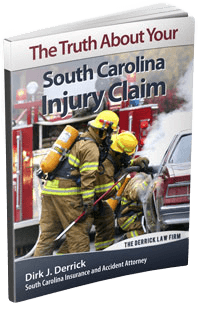Rear-End Truck Crash Injuries
Motorists who are lucky enough to survive a rear-end truck crash are likely to sustain severe injuries in the wreck:
Whiplash
Whiplash occurs when the impact of the crash snaps the car occupant’s neck and forth like a whip, hyper-extending the nerves and tendons in the neck. The results include damaged vertebrae, a limited range of motion, severe headaches, and more.
Lacerations
Lacerations caused by sharp objects or broken window glass in the car can lead to scars, disfigurement, and eye injuries.
Broken bones
Broken bones in the hands, arms, legs, and knees can result when the driver hits the steering wheel or dashboard in a rear-end crash. Fastened seat belts can also crack ribs and injure the pelvis.
Concussions and other traumatic brain injuries (TBIs)
TBIs often occur when the driver’s or passenger’s head strikes a steering wheel, headrest, airbag, or window. TBIs can lead to severe physical and cognitive damage.
Spinal cord injuries (SCIs)
Spinal cord injuries often result when a fully loaded 18-wheeler (up to 80,000 pounds) smacks into the back of a regular passenger car (4,000-5,000 pounds). If vertebrae are misaligned, broken, or crushed, nerves in the spinal column can be irreversibly damaged and leave the victim paralyzed.
Amputation
Amputation might be necessary if limbs are irreparably broken or crushed in a rear-end crash.
If you’re injured in a rear-end accident caused by a negligent truck driver, you’re entitled to file a claim with the trucker’s insurance company for your medical expenses, property damage, lost income, and pain and suffering. If you’ve lost a loved one in a rear-end truck crash, you may file a wrongful death claim against the responsible party. In either case, a consultation with a truck accident attorney is your best first step toward justice.
The Importance of Consulting a Lawyer
A truck accident claim resulting in serious injuries or death is going to be an expensive one. It’s important to understand that the insurer of an at-fault party in a rear-end truck wreck may dispute or devalue your claim to save money for the company. Its adjusters could pressure you to accept a quick, low settlement before you even know the full extent of your present and future medical expenses. You should not accept such an offer without consulting a truck accident attorney, especially if you’re injured and trying to recover your health.
Another reason it’s a good idea to talk to an attorney is that a truck crash, unlike most car accidents, could result in claims against the trucker, the trucking company, the truck owner or a leasing agency, a mechanic or repair service, and/or cargo loading personnel. Identifying all liable parties, determining their percentages of fault, demanding fair settlements from multiple insurers, negotiating for reasonable awards, and filing multiple lawsuits if fair compensation is not offered are jobs best left to an experienced attorney, especially when you’re recovering from serious injuries or mourning a lost loved one.
Protect Your Claim
You can help your attorney help you by taking the following steps, if you’re physically able, immediately after your accident:
- Call 9-1-1 to report the crash.
- Take photos of the vehicles involved and the accident scene.
- Exchange information with the other driver(s).
- Get contact information from witnesses.
- Note the location of any nearby security cameras.
- When the police arrive to make a report, answer them only with basic information and do not admit any fault.
- Seek medical attention right away, even if you don’t feel you’re seriously injured.
- Report the wreck to your own insurer.
- Consult an attorney.
Have You Been Injured In A Florence, South Carolina Area Truck Accident?
If you've been injured in a Florence truck accident you should speak with a lawyer as soon as possible. Contact us online or call our Florence, South Carolina office directly at 843.488.7540 to schedule your consultation. We are also able to meet clients at our Charleston, Conway, Myrtle Beach, Murrells Inlet, Mt. Pleasant, North Myrtle Beach or North Charleston office locations.
|
Related Links: |

 The Federal Motor Carrier Safety Administration (FMCSA) reports there are nearly 50,000 rear-end truck accidents across the country each year. They account for nearly 20% of large truck wrecks annually and take place most often in bad weather on straight, divided interstate highways when traffic is heavy. While most rear-end crashes occur in the daylight hours, those that happen after dark are more likely to be fatal.
The Federal Motor Carrier Safety Administration (FMCSA) reports there are nearly 50,000 rear-end truck accidents across the country each year. They account for nearly 20% of large truck wrecks annually and take place most often in bad weather on straight, divided interstate highways when traffic is heavy. While most rear-end crashes occur in the daylight hours, those that happen after dark are more likely to be fatal.
